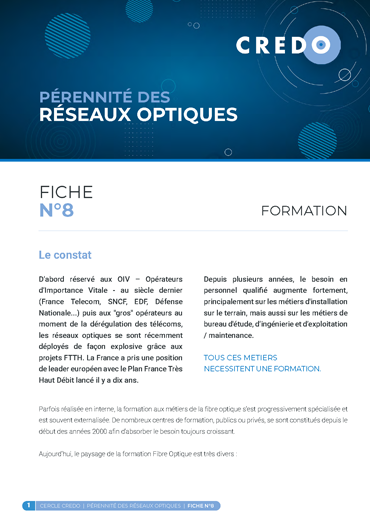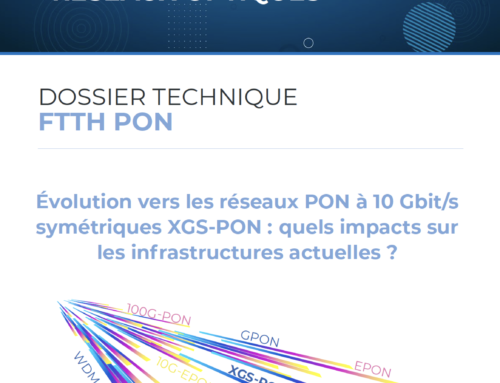First reserved for OIV – Operators of Vital Importance – in the last century (France Telecom, SNCF, EDF, National Defense…) then for “big” operators at the time of telecom deregulation, optical networks have recently explosively deployed thanks to FTTH projects. France has taken a leading position in Europe with the France Very High Speed Plan launched ten years ago.
The finding:
For several years, the need for qualified personnel has increased sharply, mainly in field installation jobs, but also in design office, engineering and operation/maintenance jobs.
ALL THESE JOBS REQUIRE TRAINING.
Sometimes carried out internally, training in fiber optic professions has gradually become more specialized and is often outsourced. Many training centers, public or private, have been set up since the early 2000s in order to absorb the ever-growing need.
Today, the Fiber Optic training landscape is very diverse:
- Major industrial players such as network designers, installers and operators, experienced – and trained – in this technology, who reserve their best technicians for “strategic” networks which are better paid
- New infrastructure operators, neutral and efficient because they often come from the staff of the structures mentioned above, who train newcomers themselves or rely on training centers
- Many new installers, with many small structures (less than 10 people), who aim to meet FTTH installation needs. However, the fragility of these companies does not always allow them to devote the necessary time to training.
- At the same time, initial “academic” training establishments (Engineering Schools, IUT, BTS, Bac Pro) or professional training (AFPA, CFA, GRETA, etc.) have adapted to these new professions and are continually enriching their programs. Many of them set up “technical platforms” adapted to current technologies, for example in the field of FTTH installation where these platforms are validated by the competent authorities.
- Many training centers, intended for all levels, which offer “à la carte” training in the form of more or less specialized modules, of variable duration and price
- The appearance of new structures dedicated to professional integration or retraining, for work-study training Finally, there are more and more online training courses of the MOOC or e-learning type (free or by subscription) which issue tracking certificates.
Technology is becoming more democratic, but it is becoming difficult to find one’s way in the face of the proliferation of training offers offered today: apprenticeship, work-study, integration, retraining, development, degree courses… At all times of a career, at all levels and in all structures, this training is essential. But how do you find THE right training?
Download this practical whitepaper (in french only) by completing the form below:





